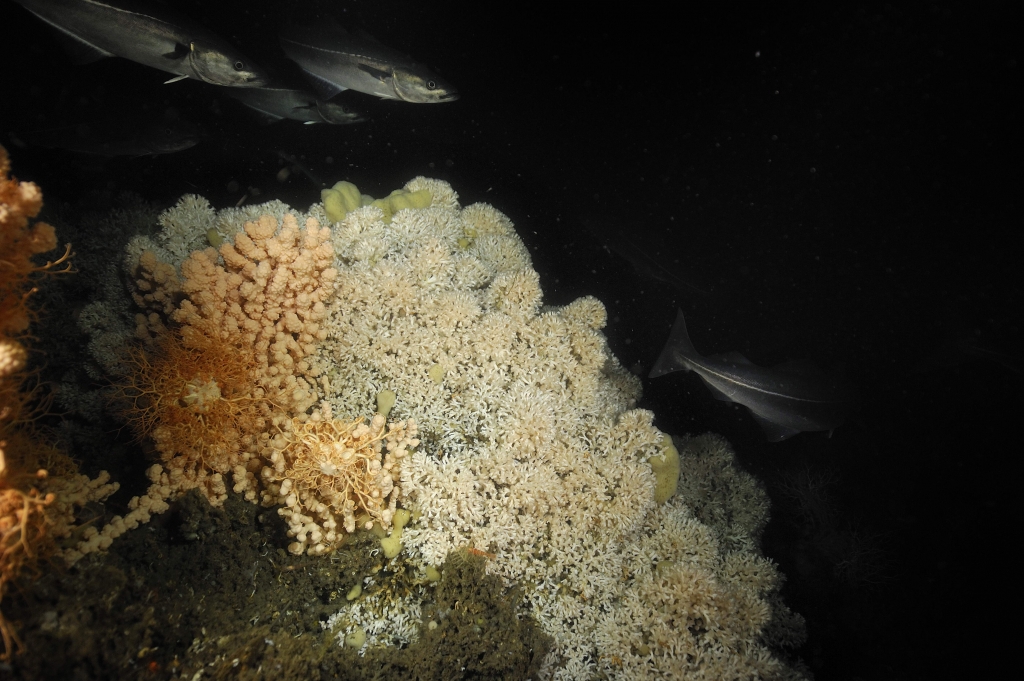NESSC-research: thrifty cold water corals
Cold water corals live in an environment with little nutrients. Researchers (among whom a NESSC-colleague) from Utrecht University, NIOZ, University of Göteborg and GEOMAR discovered that the metabolism of cold water corals is very efficient with its scarce food resources. Their results were published in Nature Scientific Reports on December 8th, 2015.
Corals in shallow tropical waters get their nutrients from symbiosis with photosynthetic algae. Living in the dark, cold water corals lack photosynthetic symbionts and are therefore considered to depend
entirely on the limited flux of organic resources from the surface ocean. Little is known about the metabolism of these organisms.

Principal investigators Jack Middelburg (NESSC-colleague and earth scientist at Utrecht University), and Dick van Oevelen (NIOZ), collected corals from three hundred meters below sea level in Norwegian sees. They grew the corals in a lab and investigated how they manage important nutrients as nitrogen and carbon, by adding stable isotopes.
The researchers found that bacterial symbionts are using the remaining energy from ammonium to create biomass. This means that even in the dark, carbon fixation takes place. The bacteria fulfill the functional role of the symbiotic algae in tropical corals.
Moreover, the symbiotic organisms were found to be able to convert nitrogen gas in bioavailable forms of nitrogen. That is remarkable: those processes are very energy consuming, so one would not expect these in the cold, resource-depleted ocean.

